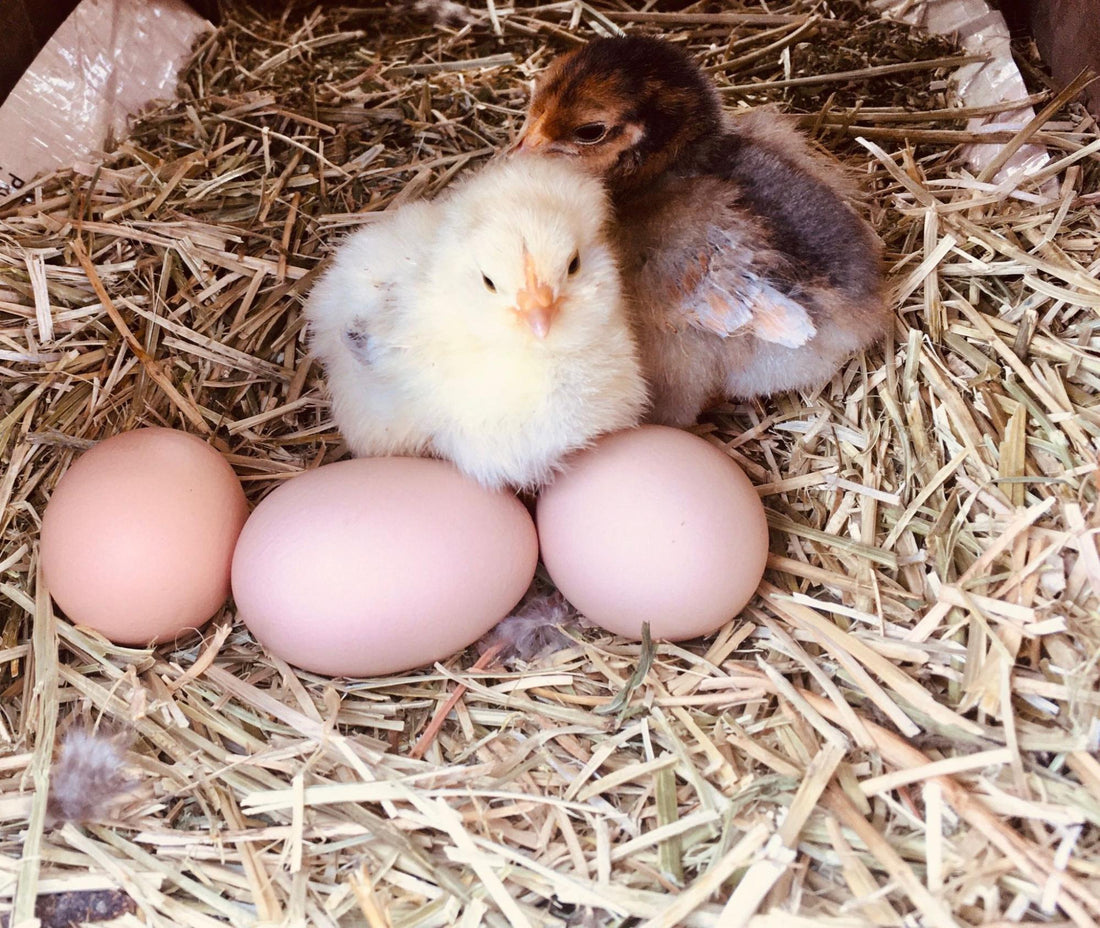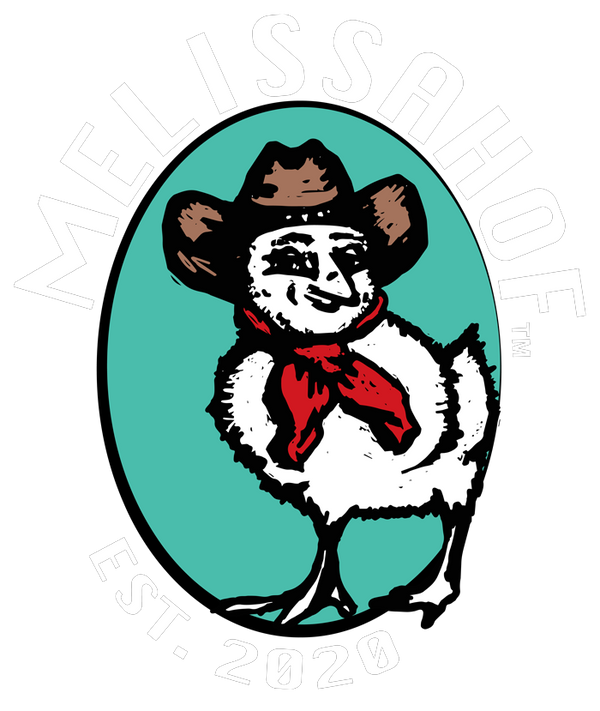
How to Hatch Chicken Eggs?
Share
Did you know that the incubation of chicken eggs is an ancient practice that dates back thousands of years? From bustling farms to cozy backyards, hatching chicken eggs remains a vital skill for poultry fanciers. You're at the right place if you dream of fluffy chicks peeping in your coop.
In this comprehensive guide to success, we'll cover everything you need to know about hatching chicken eggs successfully, whether using an incubator or relying on a broody hen.
The Fascinating Journey of Hatching Chicken Eggs
Hatching chicken eggs isn't just a process; it's a journey filled with anticipation, learning, and connection to the age-old poultry keeping practice. It's an incredible process that helps turn an egg into a chick. Hatching eggs, particularly heritage breeds like those offered by Melissahof, can enhance your experience and contribute to a sustainable, vibrant flock.
Why Choose Heritage Breeds?

Heritage breeds are standardbred poultry known for their hardiness, adaptability, and genetic diversity. At Melissahof, we focus on nurturing these breeds, ensuring our customers receive high-quality hatching eggs and healthy baby chicks. By choosing heritage breeds, you're not only supporting biodiversity but also preserving invaluable traits that have been developed over generations.
Preparing for Hatching Chicken Eggs
Before diving into the actual hatching process, proper preparation is essential. Here’s what you need to consider:
Essential Equipment
- Incubator: If you’re hatching eggs in an incubator, choose one that allows you to control temperature and humidity.
- Thermometer and Hygrometer: Accurate measurements are critical for a successful hatch. For optimal success, select an incubator with these built in.
- Egg Candler: This tool helps you monitor embryo development.
- Egg Turner: If your incubator doesn’t have an automatic turner, you’ll need to turn the eggs manually.
Following are the main purposes of each piece of equipment for further clarity:
|
Equipment |
Purpose |
|
Incubator |
Controls temperature and humidity |
|
Thermometer |
Monitors temperature |
|
Hygrometer |
Measures humidity |
|
Egg Candler |
Checks embryo development |
|
Egg Turner |
Ensures eggs are turned regularly |
Selecting High-Quality Eggs

When hatching chicken eggs, start with quality to ensure that each egg is a viable candidate for hatching. Look for the following factors:
- For viable hatching eggs, collect them daily. Store fresh eggs for at least 24 hours prior to setting them in your incubator. eggs are collected regularly and stored in a cool, dry place. Ideally, eggs should be set before they are seven days old, although up to 10 days is acceptable.
- Proper storage. Keep eggs between50-to60°F and 70-to-80% humidity until you’re ready to set them in your incubator.
- Do not wash hatching eggs. This removes the natural bloom and opens egg pores to bacteria. Dirty and cracked eggs do not have high hatch rates, as they are more susceptible to contamination.
- For fertilized eggs, keep a healthy rooster in your flock. Generally, a rooster can cover up to 10 hens.
The Incubation Process
Now that you're equipped and ready, let’s delve into the steps for hatching chicken eggs.
Step 1: Program the Incubator
Preheat the incubator. Set the temperature to around 99.5°F (37.5°C) and humidity levels between 40-50%. Check your incubator’s manual to ensure correct settings.Let the incubator run for 24 hours before adding eggs to ensure stable conditions.
Step 2: Set the Eggs
Position carefully. Place the egg's pointy end down in the incubator. If using a manual incubator, turn the eggs at least three times a day to help ensure even development.
Step 3: Monitor Conditions
Check temperature and humidity settings regularly and adjust if necessary. Aim for around 60-70% humidity during the last three days of incubation.
Step 4: Candle the Eggs
Around days 7 and 18, use an egg candler to check for embryo development. Look for signs of veins or movement, indicating a healthy embryo.
The Hatching Phase

As you approach day 21, excitement builds! Here's what to expect during this critical phase:
- Lockdown: On day 18, stop turning the eggs and increase humidity to 60-70% to prepare for hatching.This develops a moist environment that helps the chick break through the shell. Check your incubator’s manual to ensure correct settings for hatching.
- Pipping and Hatching: Chicks will typically begin to pip (break through the shell) on days 20 and 21. This process can take up to 24 hours. Resist the urge to assist the chick; their natural instincts will guide them through.
- Patience is Key: The hatching process is delicate and requires patience. Avoid disturbing the incubator during this time. Let nature take its course, and enjoy the miracle of new life emerging.
Post-Hatching Care
Once the chicks have hatched, they require immediate care, including:
- Brooder Setup: Provide a warm, safe environment with food and water. A brooder box equipped with a heat lamp and sawdust bedding is ideal. Ensure the temperature is around 95°F (35°C) for the first week, gradually decreasing as the chicks grow.
- Monitor Health: Monitor each chick closely, ensuring they are eating, drinking, and staying warm..
- Nutrition: Offer a high-quality chick starter feed specifically formulated to meet their nutritional needs. Provide fresh water at all times. You can also provide a vitamin supplement in your chicks’ water for an extra immune boost.
Conclusion: Start Your Hatching Journey Today!

Hatching chicken eggs is the most rewarding experience for poultry enthusiasts, particularly when using high-quality, ethically sourced eggs from Melissahof.
By following this guide, you’ll be well on your way to raising a healthy, thriving flock that contributes to a sustainable ecosystem.
Did you know? Melissahof provides a selection of hatching eggs, seed garlic, and culinary garlic that are available for shipping nationwide. Additionally, Melissahof offers live poultry, fresh chicken meat, and garlic products with convenient doorstep delivery or on-farm pickup for those located within Wyoming.
Ready to start your hatching journey? It’s time to embrace the joy of hatching chicken eggs today! Whether you’re expanding your flock or indulging in a fulfilling hobby, the journey begins with a single egg.
Visit Melissahof to explore our selection of premium hatching eggs and join the ranks of passionate poultry keepers dedicated to sustainability and heritage breeds.
~ Happy hatching! 🐣🐥
Related:

